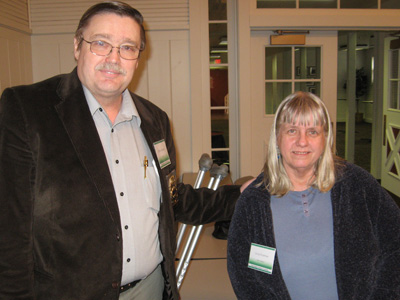
If there is one job that most people probably don’t want, it may well be Rev. Jeffrey Stewart’s, the director of the Minneapolis Police Chaplain Corps. His job is to tell people their loved one is dead.
“It’s not for everybody,” he told me during a break in a conference in Brooklyn Center today, exploring the psychological footprints of disaster. He and chaplain Linda Koelman were the people who broke the bad news to the families of the I-35W bridge collapse, the focus of much of the conference. “One of the things that we look for in chaplains and the type of chaplain that we’ve been able to get in Minneapolis is people who have a genuine calling for working with people in crisis and who have a belief that because we’re there, this terrible situation will be better because we spent the time to talk to them, to make the notification in person, to help put them in touch with the resources they need.”
“We see ourselves as the ones that walk the families through the valley of the shadow of death,” he said. And after a relative is told of the death, he said notifiers should have nothing to ever do with the family again. “Like a smell that might take you back to your mother’s kitchen, we remind people of the death of their loved one and the healing process can’t begin. We get hugs sometimes. We get handshakes and then people say ‘thank you. I hope I never see you again.'”
Stewart says he doesn’t deviate from a standard procedure. “We ask the person if they know someone named (name of deceased), and they’ll say something like, ‘yes, he’s my son.’ We never want to notify the wrong person, so we have to establish the identity of who we’re talking to. And then I’ll say, ‘I have some very bad news. Your son is dead.’ We don’t say how he died and we don’t use colloquialisms, and then we let them ask questions.”
Stewart and Koelman were a constant presence at the family assistance center for the I-35W collapse. The center closed 10 days after the disaster, but before the last body was recovered. In cases involving mass casualties, he said, “everyone is afraid they’ll be the last family there.” When the center closed, Stewart and Koelman kept in touch with families of the missing two to three times a day. When the last body was recovered, he was already heading for the home of the victim. “We had a race against the media,” he said. “It was a huge sigh of relief for the victim’s spouse and we beat the media by 18 minutes. We were happy on the way home.”
Listen to the comments of Rev. Jeffrey Stewart
